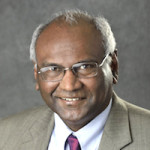The Shared Practices Of Democracies

By S. Ratnajeevan H. Hoole –December 1, 2016
Hon. Karu Jayasuriya our Chief Guest, Distinguished Guests: A warm welcome to you all on behalf of the Election Commission. We are here to celebrate 85 years of our Donoughmore Heritage. It is indeed a great achievement. It is natural to celebrate such sturdy accomplishments; to be proud of them.
I have just returned after attending two international meetings. Our participation endorses and affirms our continued commitment to our democratic traditions. First, the important meeting of the International Foundation for Electoral Systems, or IFES, to observe the US Elections. And second, the Commonwealth Electoral Network’s Steering Committee or CEN meeting where Sri Lanka represents the Asian Region. I am happy to report that we were selected to host the next of our series of CEN Biennial Meetings. It will be held around May 2018; here in Colombo. It was made apparent to us at the meeting that this choice recognizes the respect we have justly earned as a democracy. Sri Lanka will chair CEN from that meeting until the next meeting in 2020. The Commonwealth wanted a credible voice for CEN; a respected spokesperson’s voice. Mr. Mahinda Deshapriya’s name figured prominently in this choice. It did so because the Commonwealth Observation Team saw first-hand the drama that unfolded before them on that eventful night of 8 January 2015.
Enough, now, on our achievements! However good we might be, we can always be better. Recognizing this, CEN and IFES together seek to share our pool of best practices. Every democracy from around the globe – big or small, strong or weak – has contributed to these best practices, practices that we all innovate and share. This sharing helps us expand on and reinforce our Donoughmore Heritage. I therefore wish to share here some of the practices that others employ which we can benefit from; practices I learnt of, practices I learnt from, on this trip. I have chosen to elaborate on four of these that struck me as very relevant and important to us here in Sri Lanka.
First, voter registration. We have been doing this for years in ways similar to those of many other countries. We therefore think we have perfected this. Annually our Grama Niladris – our Kirama Sevahars – go house to house in the month of June and register voters. Two deficiencies in our methods were, rather forcefully, brought to my attention: those who turn 18 a little after June 1 will not be able to exercise their franchise until they are really 19. Mind you, the constitution gives each citizen the right to vote upon reaching the age of 18.
Our Commission has been aware that we fail our youthful voters badly in this. It has been deliberating on what we can do. The Commonwealth, on the other hand, advocates registration, particularly as an election is just ahead of us; not periodically at fixed times. They also suggest that our use of public servants as temporary employees seconded to the Commission for this exercise, makes our voter rolls questionable. They say the loyalty of public servants may lean towards the party in power. That opens to question the credibility of our voter rolls. They suggest using people from the private sector as well. We must certainly think about this.
Second: The US Elections saw 30% of the electorate voting well before polling day; which technically is only the last polling day. To preserve the secrecy of the ballot, two envelopes are used. An outer envelope verifies the validity of the voter’s registration. Inside that envelope is a secrecy envelop containing the actual, marked ballot. It has no marking. It is pooled with all others and opened at the time of counting. Is this not the means to three useful things? – a) avoiding long lines at the polls that discourage voter participation, b) increasing through enhanced convenience, the participation of emergency workers and people who must travel long distances on polling day and therefore cannot vote; and c) restoring the right to vote of our Diaspora. After all, the Diaspora are guaranteed the right to vote as citizens in our constitution. But we deny them that right. They bring in valuable foreign exchange. We cannot – we must not – fail them.


